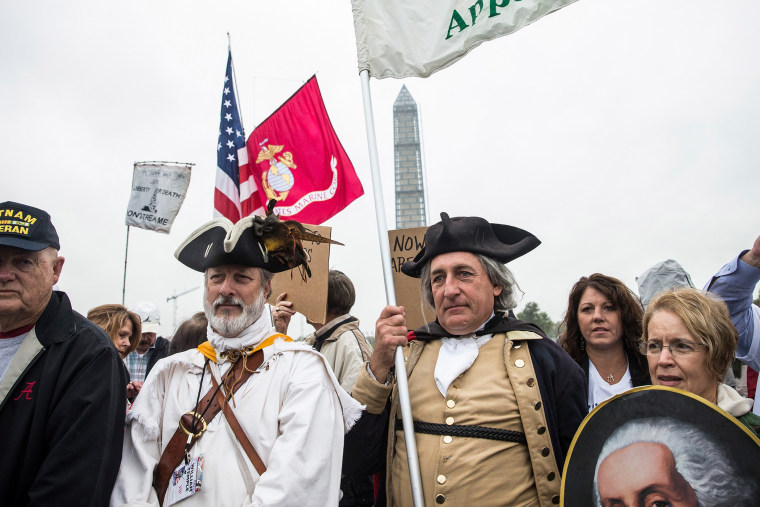Four years after the tea party rose to prominence in Republican politics, support for the movement among the GOP has dropped to about four in 10, according to a new poll.
The Gallup poll released Thursday found 41% of Republicans and Republican-leaning independents consider themselves supporters of the tea party movement, while 11% consider themselves supporters.
The most popular sentiment among Republicans is ambivalence: 48% classify themselves as neither supporters nor opponents.
Support has dropped significantly from the peak hit during the November 2010 election, when 61% of Republicans identified themselves as supporters of the movement. Many tea party affiliated candidates won in that election, allowing the GOP to take control of the House of Representatives.
Gallup analyst Frank Newport suggests the support trends "may suggest that the GOP is on a more moderate track in general."
The drop in support among Republicans since then has fueled an overall drop in support among all Americans, as Democrats and Democratically-leaning independents have remained stagnant in their general lack of support for the movement since November 2010, with 49% opposing it today, down just slightly from 55% in 2010. Those who say they have no opinion has risen from 36% to 43% since November 2010. Support remains below 10%.
Support among all Americans has dropped from a high of 32% in November 2010 to just 22% today, and has remained "remarkably steady" since September 2013. The number of Americans who consider themselves opponents of the movement has jumped six-points in recent months to tie a previous high high of 30% hit in prior years. Nationally, more Americans are ambivalent about the movement, with 48% saying they neither support nor oppose it, up from 38% in November 2010.
Tea party candidates have at least one factor on their side heading into the 2014 midterm elections: tea party supporters are more likely to be focused on those coming votes. When asked about their voting enthusiasm, 52% of tea party Republicans said they were more enthusiastic about voting this year, while 39% said they were less enthusiastic. Among the non-tea party supporting Republicans 35% were more enthusiastic and 60% less enthusiastic. For all non-Republicans 29% are more enthusiastic and 58% less so.
Tea party Republicans were also more likely to have put a lot of thought into the election: 43% compared to non-Tea Republicans at 26% and non-Republicans at only 19%.
